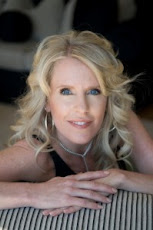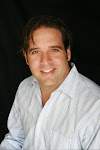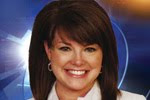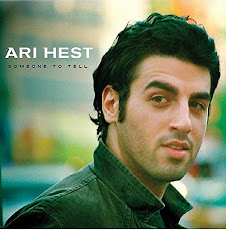Perrin: You originally attended JMU and then transferred to Radford in 1986, why did you transfer?
Travis: The biggest reason was for basketball. I was playing basketball at JMU and I was having a blast and enjoying it, but I just wasn’t playing as much as I would have liked. It was just an opportunity to go somewhere and play a little more.
Perrin: Who inspired you to play basketball when you were a kid?
Travis: My dad was and still is a high school basketball coach. I grew up in the gym and was a gym rat – I always had the keys to the gym. We would go in there, I am one of four boys, and we all played for my dad. He was the assistant coach when I was there but by the time I graduated he was the head coach and coached my three younger brothers.
Perrin: Did you like having your dad as a coach?
Travis: Yes and no. It had its advantages and disadvantages. One thing we always tried to do was if there were something going on, if we were going at it a little, we would always try to leave it at the gym. When we went home, it was dinner and family stuff.
Perrin:What life lessons did you learn from playing a college level sport?
Travis: I think just being apart of a team was the biggest thing. I see this a lot everyday, especially in a work place like this. So many people have never been apart of a team. They don’t know what it’s like for everyone to do their part and pull for each other and care for each other to work towards a common goal. I think that was probably the biggest thing, just being apart of a team and rallying around guys who were working just as hard as you for the same goal.
I wrote something on my blog the other day about college football and just how the fans are so passionate. Like at the Alabama/Tech game in Atlanta a few weeks ago, oh my gosh! And to see the Tech people last week in the pouring rain and they stayed until the end. And the Nebraska game a few weeks ago, all the people that they brought 2,000 miles from Nebraska. Just passion that people have. I’ve always said if you are passionate about something in your life, no matter what it is, just be passionate about it.
Perrin: And how hard was it to manage academics and play ball?
Travis: It wasn’t that tough, I was always pretty conscience about schoolwork and the books. They go out of their way to help you as far as having academic advisors. Some guys needed them and some guys didn’t. We would have study halls on the road and things like that. To me, it wasn’t that difficult.
Perrin: What was your motivation to become a sports anchor? And when did you realize it?
Travis: I always knew I wanted to do something sports related. In high school, I wrote for the school paper doing sports articles and things like that. I played college sports but I wasn’t under any grand allusions about playing professional sports because I knew I didn’t have that kind of talent. So I sort of knew after college was the end of the road and I had to find a real job. This was a way for me to stay close to the game and stay close to sports and that was appealing to me.
Perrin: What was your first media job/internship out of college?
Travis: The summers between my junior and senior years at Radford I did an internship here (WDBJ) for about three months. I started in the middle of June and was done by the end of August when school started. That was good to get my feet wet and see if this was something I wanted to do and was cut out for. The guys that I worked with here were great, none of them are here anymore but they are all still in town and I call them from time to time. But we’ve got a great group of guys in here now.
My first TV job after college was here. There was a part-time photographer position open and that really wasn’t what I wanted to do. I wanted to obviously do sports but these guys back here convinced me that this was a way for me to get my foot in the door. To be honest, it wasn’t a lot of fun just covering news, but for some people, that is their thing. I mean I had to cover a fatal car wreck, school board meetings, city council meetings and fires and I was like, where is the fun stuff? So I was part-time for a year and then there was an opening in our Lynchburg office for a full-time photographer with benefits, so I went down and worked there for a year. That was even tougher because it was just you and that one other person working in that office. My first on-air job was in Charlottesville at WVIR and I went there as the third sports person, reporter/photographer. I went there for three years and then left and went to Bristol to work for WCYB. Then I came back here (WDBJ) when Roy passed away.
Perrin: Describe how you felt when you heard you were getting promoted to Sports Director at WDBJ.
Travis: It was pretty overwhelming at first because, I think the biggest thing was, I didn’t think Mike would ever leave. Mike had been here for so long and having worked with him for almost seven years, I knew what kind of responsibility came with the job. I knew all the work that went into it, especially in the fall when you are trying to produce stuff for your daily news cast and get ready for a half-hour show every Friday night. The TV stuff I’m fine with but it’s all the extra stuff like scheduling these guys (other employees in the studio) and figuring out who gets off when and stuff like that. It’s been just over a year and I’m finally getting the hang of it and starting to feel more comfortable.
Perrin: What is a common misconception that you think people have about working in the media industry?
Travis: That you make a lot of money (laughs). Like I said, I was a naïve kid in college and thought TV people made a lot of money. I mean there are some anchors that have been here for 20-30 years and they do make a lot of money but it doesn’t really start out like that. I think another misconception is that when people see us on the news at six and eleven, they think that is the only time we are at work.
Perrin: What are some tough obstacles that you have to face in the media industry?
Travis: I think one thing, and I found out this in the last year, you are not going to please everyone 100 percent of the time. We catch a lot of flack around here for covering Tech and not UVA, just things like that. Even with the high school stuff. Everyone wants more coverage for their team. Sometimes I will come in here on Mondays and I will have 30 emails from unhappy people. So just trying to manage that. Also, I think the economy has been a tough obstacle. We used to be able to travel as much as we wanted but everything is sort of looked at a little closer now. We ask if this is something that we really need to do, is it in a ratings period and what do we get out of it. So that’s been sort of a challenge the past three to four years.
Perrin: What else do you do in the studio besides anchor? Write stories/recaps?
Travis: We do everything which is one thing that is unique about the sports office and not always true about the newsroom. All three of us can shoot, report, anchor, write and produce the show. And I like that because if I screw up, I don’t have anyone to blame but myself.
Perrin: Describe what an average day is like for you.
Travis: I’ll get in the studio around two in the afternoon and start producing the show for five and six o’clock, which is about three to four hours before we actually air. I mean these guys are great, who ever is anchoring, we kind of take care of each other. We will edit and write stuff for each other so it is not such a burden on one person. I’ll get out of here around 6:30 for a couple hours for dinner and to see my kids before they go to bed and then come back in here around 8:30. After the show ends around 11:30, I’d love to go home right then but there is stuff to do after the show ends. We tape two segments for the morning show every night so by the time I’m finished that it’s about midnight. Then I’ll come back here and update the Internet and stuff like that so the earliest I am ever out of here is 12:30.
Perrin: What is advice that you would give to someone looking to become a sports anchor?
Travis: That’s a tough one. I think just network as much as you can and make as many connections as you can. Be yourself and be passionate about it. If you really want to do it, it’s not going to be easy, but just stick with it.
Perrin: Do you think it is more challenging for a female to become a sports anchor/director? Why/Why not?
Travis: Not now, no. Twenty years ago I would have said yes but not anymore. There are more and more female sportscasters and I think the main reason for that is people want to target that demographic. They want women to watch sports. I don’t want to say it’s easier or women don’t have to work as hard as guys but there are more opportunities now.
Perrin: Who do you consider are the standouts in the industry and why?
Travis: Wow, that’s a tough question. Mike Tirico is really good. You can tell the guys and girls that are really prepared because they just know their stuff. I was watching something on ESPN the other day and John Clayton was talking about the NFL and I was thinking that guy knew his stuff backwards and forwards. I had a guy tell me one time, “sell it don’t tell it”. You can tell when people have done their research just by their delivery and confidence.
Perrin: What is your favorite part of your job?
Travis: I think probably the people and just the relationships that are you able to build and maintain. That’s one thing I learned from Mike because he was really big on relationships. In this small community people don’t want to hear about the Yankees who play over 100 games. They want to hear what’s going on in their community so I think just building relationships and credibility with people. It’s cool to go up to Tech on a Saturday and your interviewing guys after the game, you see the mob around Tyrod Taylor. But it’s cool to sit back and let it fade out a little bit and get in there and talk to him. All the guys get used to seeing us and it’s hard when they leave! Like last year when Macho graduated it was like man, we were buddies! But I guarantee if I went to go shoot an Eagles game and walked into the locker room, Macho would say, “Hey what’s up man?”
Perrin: Is it harder to get a job doing sports rather than just the regular news?
Travis: It’s all pretty competitive. Sports are probably tougher now in this day and age because of the de-emphasis in the economy. People are cutting back and sports are usually the first thing to go because a lot of people don’t see it as a necessity.
Perrin: What would make me stand out from the thousands of other aspiring sports anchors?
Travis: Just be yourself and be conversational. Go in and have fun and let it all hang out. That’s one thing I have been trying to work on too. When I’m out in the field doing live shots, I’m pretty relaxed but it was not always like that. I mean you better know what you are going to say because there is no teleprompter. I try to have more fun with my anchoring because it is hard when you are just sitting there to show personality, which is something that I need to work on.
Perrin: What are some cool opportunities that you have had because of your job?
Travis: I’ve had a lot of opportunities. One was covering the national championship that Tech played in – the Sugar Bowl in 1999-2000. I get to go to the bowl games and races and stuff like that. They usually set tickets aside for the media’s family, which is nice, but they are not free.
Perrin: How do you decide what to wear for each show / event?
Travis: They expect you to wear a suit and tie when you are on the set anchoring but it is much more laid back when you are out.
Perrin: What do you like about your profession and what don't you like about your profession?
Travis: I think the biggest thing I like is developing the relationships and meeting the people and telling their stories. Even if they don’t know you, I want them to come away saying, wow he is a nice guy. As far as the things I don’t like, I’ve worked with a lot of people who have been in the business for the wrong reasons. So many people in this business have their egos get in the way and they just want to be on TV. So that’s probably what I dislike the most.
Perrin: Are you able to spend a decent amount of time with your family?
Travis: Yeah, I think so. You do what you have to. There are sacrifices obviously. I worked weekends for 8 years and that was tough because my wife was off weekends. Now, I have more weekends off but I usually don’t get to be at home at night so there are tradeoffs. You do what you have to.
Perrin: What do you enjoy to do in your free time?
Travis: I like to read, play golf, and work out.
Perrin: Where do you like to vacation?
Travis: We have gone to Myrtle Beach since I was knee high. But twice in the last four years we have been able to go to Hawaii because my wife won these incentive based sales trips. So this last year was the third time we went because we went to Hawaii on our honeymoon and we stayed three doors down from the place we stayed during our honeymoon, so that was kind of neat. Hawaii is my dream vacation and it will never get old.












